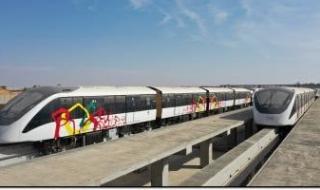
استمع إلى المقال
استمع
تبدو مسيرة السودان كأنها لوحة معقدة من انقلابات عسكرية، ثورات شعبية، وتحوّلات سياسية متلاحقة ومآسٍ إنسانية متجدّدة. فمنذ نيلها استقلالها عن مصر عام 1956، دخلت البلاد في دوامة متكررة من تغيير النظام بقوة الانقلابات والأحزاب، ما عكس هشاشة المؤسسات المدنية وسلطوية الأجهزة الأمنية، فأول انقلاب نفذته القوات المسلحة كان عام 1958 بقيادة الفريق إبراهيم عبود، وكان انقلاباً عسكرياً ناجحاً ضد الحكومة المدنية التي تشكّلت من ائتلاف حزبي «الأمة» و«الاتحادي الديمقراطي»، بعد ذلك وفي عام 1969 قاد العقيد جعفر محمد نميري انقلاباً أسّس لحكم دام نحو 16 عاماً. ثم جاء تمهيد للانقلابات المتلاحقة في السبعينيات: في يوليو 1971 حدثت محاولة انقلاب قصيرة بقيادة هاشم العطا بدعم من الحزب الشيوعي لكنها فشلت خلال أيام، وعاد نميري إلى السيطرة، وفي 1985 أُطيح بنميري عبر انتفاضة شعبية وانقلاب عسكري قاده الفريق عبدالرحمن سوار الذهب، ما أنهى حقبة نميري ودشّن فترة انتقالية جديدة ولم تكن هذه النهاية، ففي 1989 وصل إلى السلطة بواسطة ضربة عسكرية عمر حسن البشير، الذي حكم السودان نحو ثلاثين عاماً انتهت بانتفاضة شعبية ثم انقلاب في أبريل 2019، ليدخل السودان مرحلة انتقالية قصيرة انتهت بانقلاب 2021 بقيادة الفريق عبدالفتاح البرهان. هذه الدورة الطويلة من الانقلابات تركت دولة مثقلة بالجراح، وضعيفة المؤسسات، ما جعلها عرضة لانفجار جديد من الصراعات الداخلية، وهذا التسلسل الطويل من الانقلابات -التي قُدرت بأكثر من ستة ناجحة وعدة محاولات فاشلة أخرى- يتيح خلفية ضرورية لفهم كيف أن مؤسسات الحكم المدني ظلت عاجزة أو ضعيفة، وكيف أن العنف السياسي والقوة العسكرية هيمنتا على المشهد السوداني مراراً.
من رحم هذا التاريخ المتقلب اندلعت الحرب الأخيرة في أبريل 2023 بين الجيش وقوات الدعم السريع، التي تحوّلت من شريك في السلطة إلى خصم دموي، ومع اتساع رقعة القتال، تحوّلت مدينة الفاشر في إقليم دارفور إلى رمز للمأساة الإنسانية في البلاد، بعد أن شهدت حصاراً طويلاً وهجمات متكررة وعمليات قتل بالهوية أودت بحياة المئات، وفق تقارير الأمم المتحدة ومنظمات حقوقية دولية وباتت تعاني المدينة من نقص حاد في الغذاء والدواء وانقطاع المساعدات الإنسانية، فيما نزح آلاف المدنيين إلى مناطق أكثر أمناً وسط تحذيرات من مجاعة وشيكة.
يقف السودان اليوم على مفترق تاريخي جديد، بين استمرار الدمار أو بداية طريق الخلاص. وبينما يعاني الشعب السوداني من ويلات الحرب، يبقى الأمل معقوداً على مساعٍ عربية ودولية صادقة، تتقدمها المملكة أمام هذا المشهد القاتم ليبرز الموقف السعودي كصوت متزن ينادي بالتهدئة ودعم الاستقرار. فقد أكدت المملكة العربية السعودية مراراً رفضها لأي تصعيد أو محاولات لتقويض وحدة السودان، ودعت إلى وقف فوري لإطلاق النار وحماية المدنيين والبنى التحتية، كما واصلت جهودها في مسار جدة التفاوضي، وساهمت في المبادرات الإنسانية والإغاثية بالتعاون مع الأمم المتحدة وشركائها الدوليين لطي صفحة الصراع وفتح باب السلام الذي يستحقه هذا البلد العريق.
The trajectory of Sudan appears to be a complex tapestry of military coups, popular revolutions, successive political transformations, and recurring humanitarian tragedies. Since gaining independence from Egypt in 1956, the country has entered a repetitive cycle of regime change through coups and political parties, reflecting the fragility of civil institutions and the authoritarian nature of security apparatuses. The first coup executed by the armed forces occurred in 1958, led by General Ibrahim Abboud, and it was a successful military coup against the civilian government formed by the coalition of the "Umma" and "Democratic Unionist" parties. Subsequently, in 1969, Colonel Jaafar Nimeiri led a coup that established a rule lasting about 16 years. This was followed by a prelude to the successive coups of the 1970s: in July 1971, a brief coup attempt led by Hashim al-Atta, supported by the Communist Party, failed within days, and Nimeiri regained control. In 1985, Nimeiri was ousted through a popular uprising and a military coup led by General Abdul Rahman Suwar al-Dahab, which ended Nimeiri's era and ushered in a new transitional period. However, this was not the end; in 1989, Omar Hassan al-Bashir came to power through a military coup, ruling Sudan for nearly thirty years until a popular uprising and coup in April 2019 led to a short transitional phase that ended with the 2021 coup led by General Abdel Fattah al-Burhan. This long cycle of coups left a state burdened by wounds and weak institutions, making it susceptible to a new explosion of internal conflicts. This lengthy sequence of coups—estimated to be more than six successful ones alongside several other failed attempts—provides a necessary backdrop to understand how civil governance institutions have remained incapacitated or weak, and how political violence and military power have repeatedly dominated the Sudanese scene.
From the womb of this tumultuous history, the latest war erupted in April 2023 between the army and the Rapid Support Forces, which transformed from a partner in power to a bloody adversary. As the fighting expanded, the city of El Fasher in the Darfur region became a symbol of humanitarian tragedy in the country, having witnessed a prolonged siege, repeated attacks, and identity-based killings that claimed hundreds of lives, according to reports from the United Nations and international human rights organizations. The city is now suffering from severe shortages of food and medicine and a disruption of humanitarian aid, while thousands of civilians have been displaced to safer areas amid warnings of an imminent famine.
Today, Sudan stands at a new historical crossroads, between continued devastation or the beginning of a path to salvation. While the Sudanese people suffer the horrors of war, hope remains pinned on sincere Arab and international efforts, with the Kingdom of Saudi Arabia taking the lead in this bleak scenario, presenting itself as a balanced voice calling for de-escalation and support for stability. The Kingdom of Saudi Arabia has repeatedly affirmed its rejection of any escalation or attempts to undermine the unity of Sudan, calling for an immediate ceasefire and the protection of civilians and infrastructure. It has also continued its efforts in the Jeddah negotiation track and contributed to humanitarian and relief initiatives in cooperation with the United Nations and its international partners to close the chapter of conflict and open the door to the peace that this ancient country deserves.
ملحوظة: مضمون هذا الخبر تم كتابته بواسطة عكاظ ولا يعبر عن وجهة نظر مصر اليوم وانما تم نقله بمحتواه كما هو من عكاظ ونحن غير مسئولين عن محتوى الخبر والعهدة علي المصدر السابق ذكرة.






